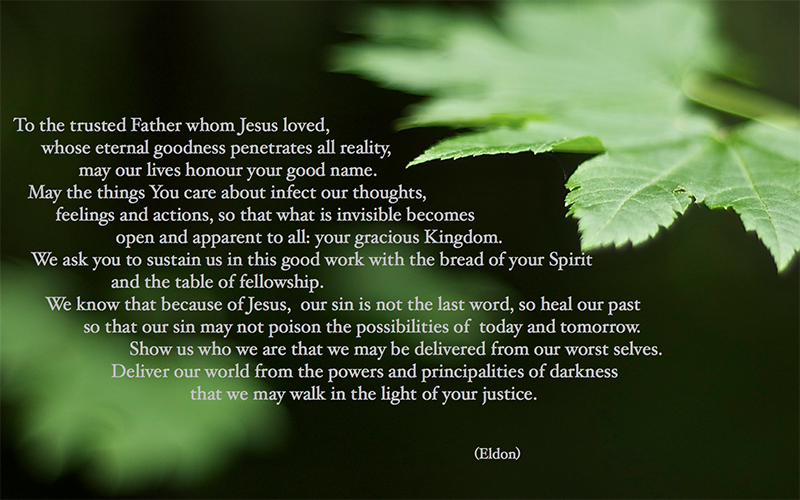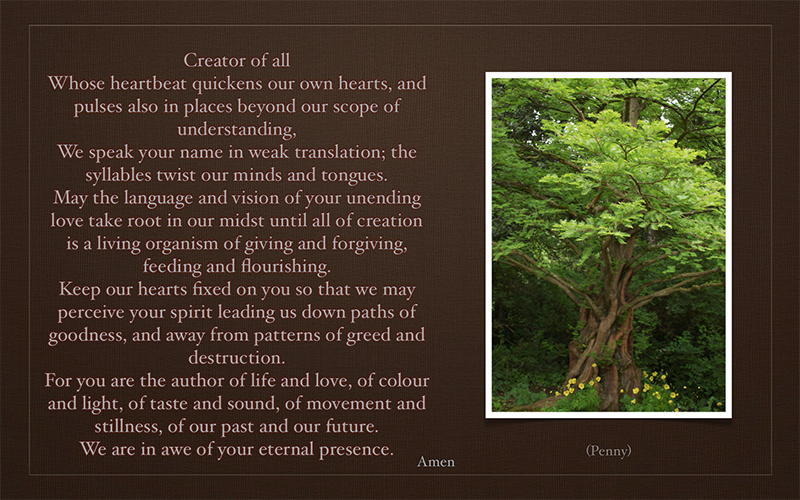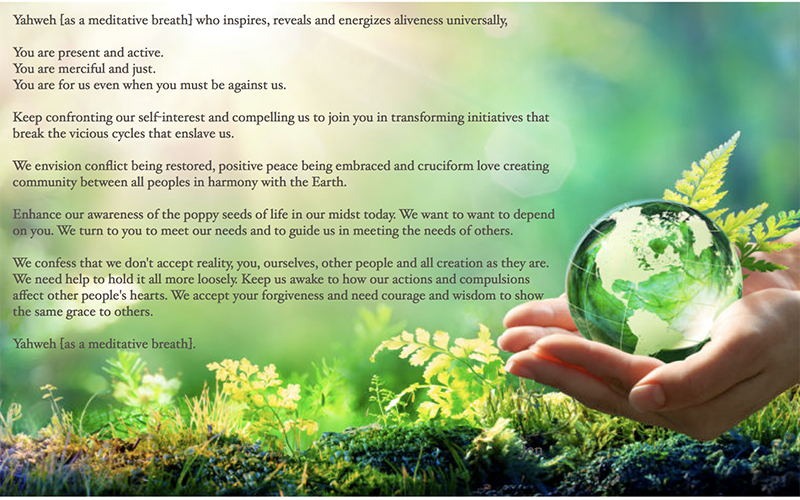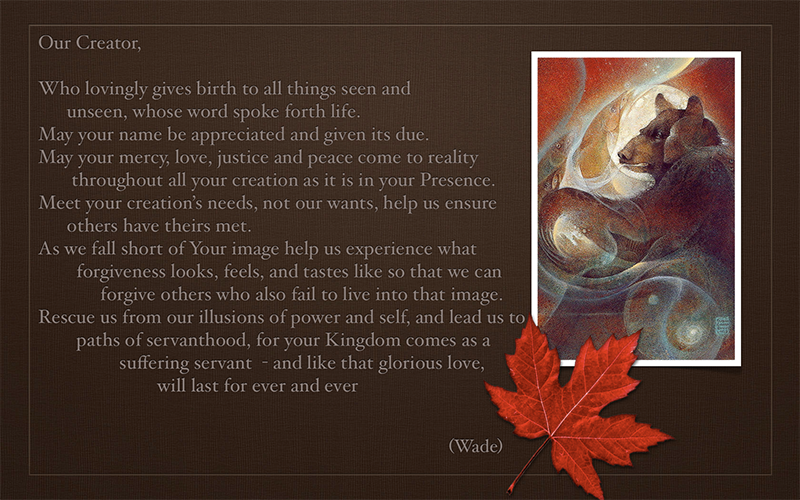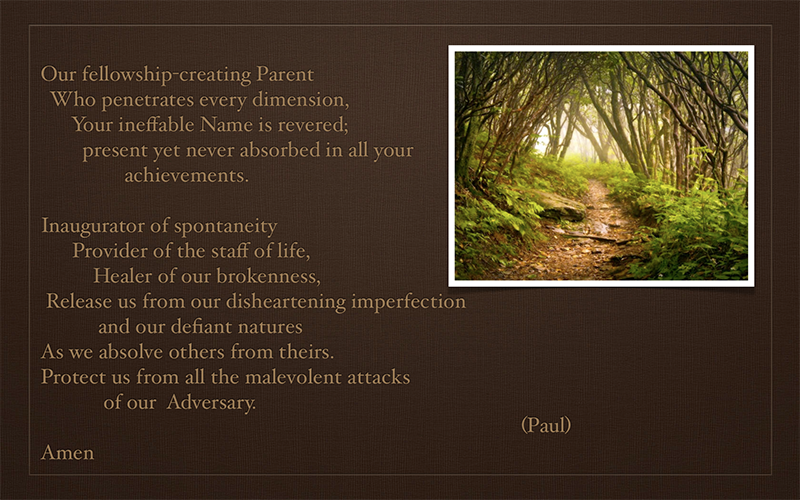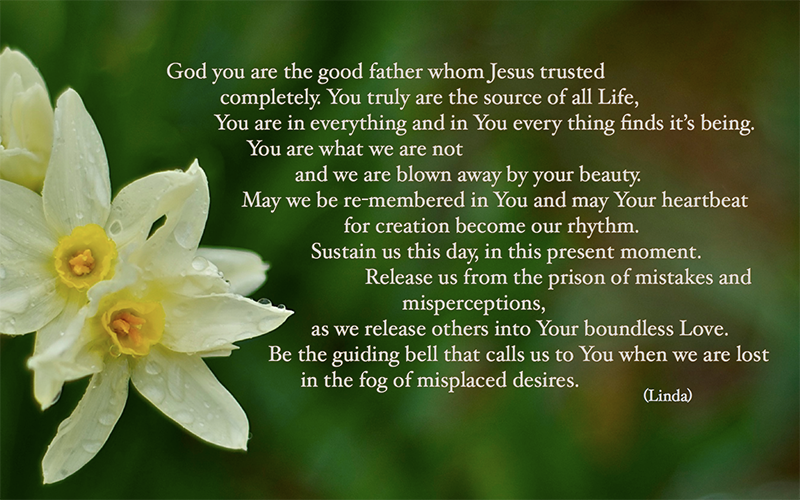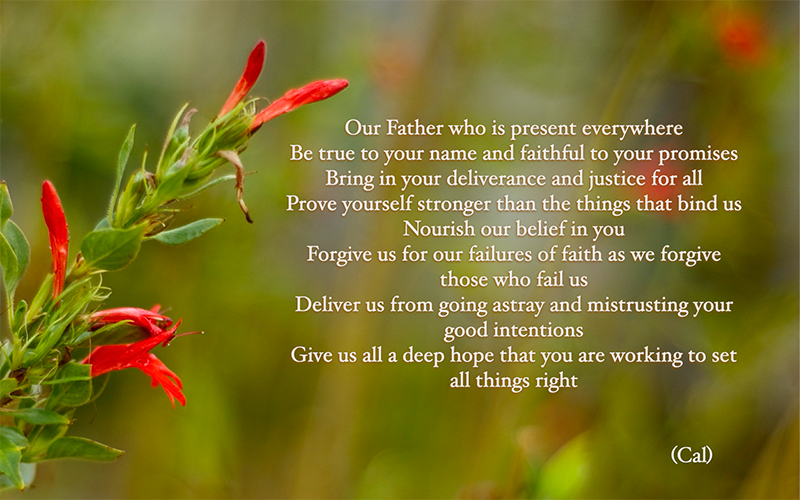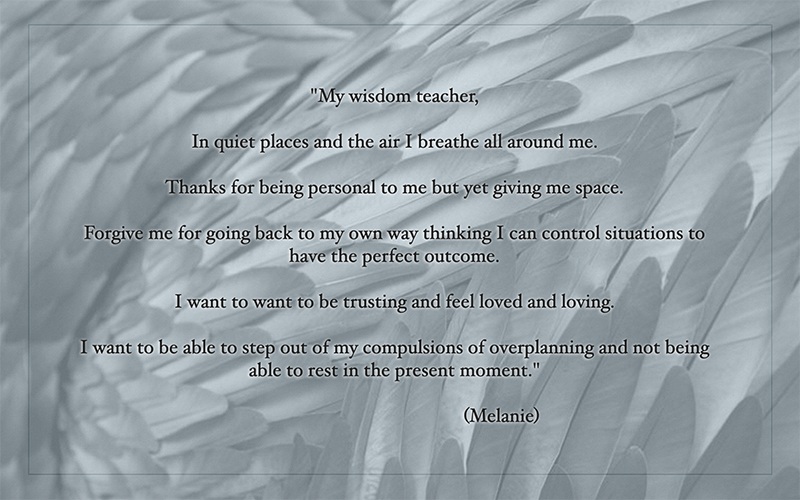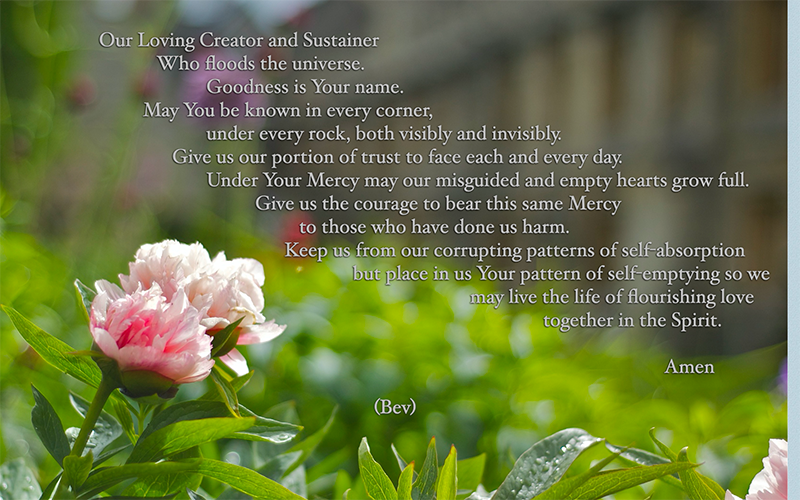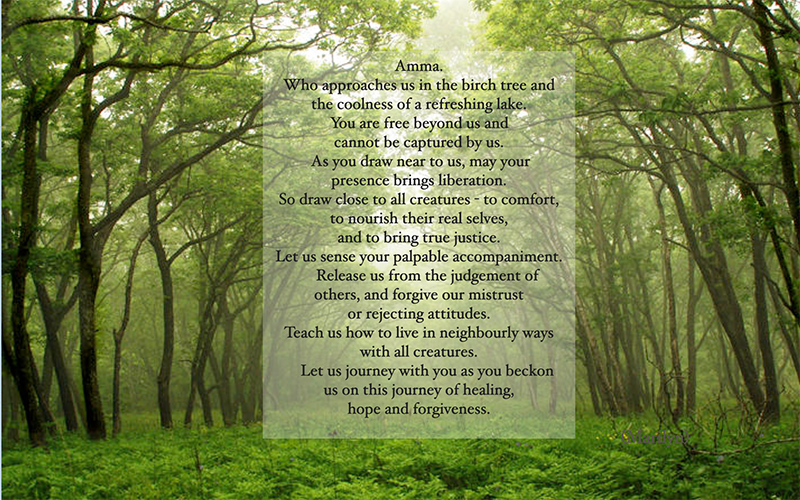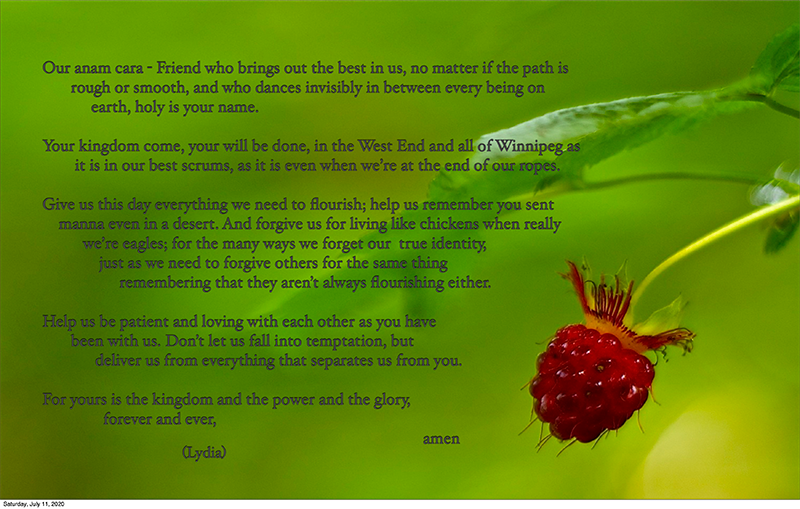Spirit, Learning and Life
Forming character through the insights of literature, contemporary culture and Scripture.
What Will You Be Building
Sermon on the Mount in a Time of Change
by Linda Tiessen Wiebe
IN JANUARY 2020 our community began a study of Sermon on the Mount (Matthew 5-7). In March the world entered a global lockdown due to the COVID-19 pandemic. If Jesus’ words were an urgent call to his community then, they certainly took on an urgency to us as we navigated these three chapters in the coming months.
Image from Visual Homilies: we are called to leave our comfort and follow
This passage is widely accepted to be the closest we come to Jesus’ actual teachings. Even though Matthew collected and edited them for his community, and even though they were probably not all taught in one sitting, they still have a ring of authenticity about them. Jesus was teaching his disciples the essentials for life in the kingdom of God and Matthew was using these instructions for his community of disciples who were likely dealing with disappointment, displacement, temptations and questions.
Our own community was undergoing changes due to COVID fears and Zoom displacement and we were beginning to ask ourselves what was essential for life in the community of Watershed. Many of us found that while Sermon on the Mount can sound strident to Western ears on first reading, as we sat with and reflected on the verses, we realized the deep hope and love that informed Jesus’ teachings. Here are some of the things we came away with.
God is already at work - Although Matthew 5-7 compels us to change our behaviors, these chapters assume God is already at work, especially when we go through upside-down experiences. Yearning for justice, peace, truth, love are already signs that God is at work. Many of us felt the Beatitudes weaving their way through as we studied. We are called to listen more deeply to the Love of the overturning of the Spirit in our lives and in in our community.
Transforming Initiatives - Anger, lust, duplicity, religiosity are different aspects in which our instincts can tempt us to maladaptive behaviors which we usually regret. But Jesus’ words “But I say to you…” gives us clues to habits that can short-circuit these vicious cycles. They encourage disciples to take the initiative in reconciliation, in truth-telling, in intercessory prayer. We are able to take these initiatives because God is already at work ahead of us.
Truth and Love - any community will inevitably experience the tension between telling the truth and keeping the peace. When communities are experiencing change, its a very real temptation to not want to rock the boat. But the cost is becoming less authentic, less ourselves. Jesus shows us that loving our neighbor and being honest with our neighbor are two sides of the same thing. Although these can lead to difficult conversations, the Spirit gives us the wisdom on what to say and how, to lead to a deeper healing. To make “good trouble” in the words of John Lewis.
Digging Your Own Well - when stress reveals personal and communal fault lines, its very tempting to rely on our default responses to try to control the chaos. But the Sermon on the Mount encourages us instead to deep personal prayers of confession, lament and intercession, to rely on God’s love and faithfulness. To come to the end of our rope turns out to be a place of hope, not despair. Out of this deepening relationship with living Jesus flows guidance that informs our words and actions, teaching us how to love God in the neighbor in creative new ways. This is the rock on which to build.
Covenanted Love - through our study we were more able to discern God’s faithfulness in spite of circumstances. God’s covenant with humanity is most clearly shown in the life and teaching of Jesus, and comes alive within us through the Spirit. And Jesus’ deep trust in the goodness of God invites us to a deeper trust. The more we integrate this deep abiding love, that includes even the most unlikely, the more we are able to enter into a covenanted love with each other and for the world.

Jesus' Prayer
As part of our reflection on Jesus' Prayer from Matthew 6:9-13, each of us wrote the prayer in our own words. It was a helpful way to ingest this powerful prayer.
Further Resources
Here are some of the resources we used during our course. We hope you find them as fruitful as we did.
Videos
- Tim Mackie sermons
- Brad Jersak sermon
- Modern Beatitudes by Nadia Bolz-Weber
- “Unexpected” - Sermon on the Mount sermon series from Woodland Hills Church
Podcasts
- Tim Mackie sermons
Books
- Living the Sermon on the Mount: A Practical Hope for Grace and Deliverance by Glen H. Stassen - Offering both excellent scholarship and application, this book lives up to its title as being a practical guide to living Jesus’ teaching. Stassen’s words helped the ancient text come alive for our community.
- The Sermon on the Mount: Inspiring the Moral Imagination by Dale C. Allison - A more academic dive into the Sermon on the Mount.
- Contrast Community: Practicing the Sermon on The Mount by James L. Bailey - Thorough yet succinct look at the Sermon on the Mount with practical study methods for groups. Bailey writes in a way that’s engaging and easy to understand.
- The Cost of Discipleship by Dietrich Bonhoeffer - One of the most important theologians of the twentieth century illuminates the relationship between ourselves and the teachings of Jesus in this classic text on ethics, humanism, and civic duty.
- What are They Saying About Matthew’s Sermon on the Mount? by Warren Carter - Introduces readers to the contours and issues of contemporary interpretation of Matthew's Sermon.
- Studies in the Sermon on the Mount by Oswald Chambers - The author of the well-known devotional My Utmost for His Highest offers insights into Matthew 5 - 7.
- The Sermon on the Mount Through the Ages: From Early Church to John Paul II by Jeffrey P. Greenman, Timothy Larsen, and Stephen R. Spencer, eds. - An overview of authors throughout Christian history and their shifting perspectives on the Sermon the Mount.
- The Christ on the Mount: A Working Philosophy of Life by E. Stanley Jones - Though some of the language may be antiquated, this classic written in 1931 will stir your heart.
- Sermon on the Mount: A Verse by Verse Look at the Greatest Teachings of Jesus by R. T. Kendall - Reading more like a devotional than a commentary, this author offers strong theology with simple clarity.
- Sermon on the Mount: The Story of God Bible Commentary by Scot McKnight - This book became one of the “go-to’s” during our community’s study. Accessible with good insights and applications.
- Mount and Mountain: A Reverend and a Rabbi Talk About the Sermon on the Mount by Michael Smith & Rami Shapiro - The title says it all. This book was inspired by a long-running virtual blog conversation begun in 2008.
- The Message of the Sermon on the Mount by John C. Stott - An engaging, rich and accessible commentary
- Reading the Sermon on the Mount: Character Formation and Decision Making in Matthew 5-7 by Charles Talbert - A concise and clearly-written introduction to and commentary on the Sermon
- The Divine Conspiracy: Rediscovering Our Hidden Life In God by Dallas Willard - Many consider this book a classic.

